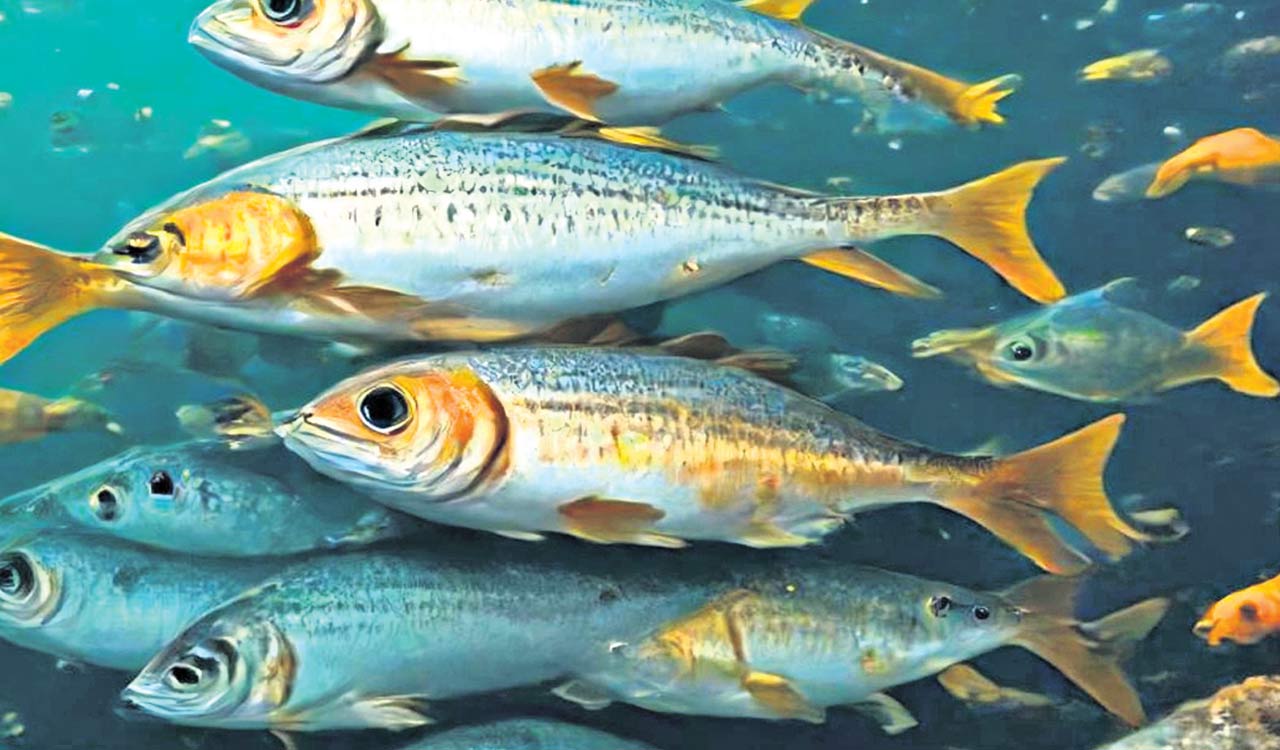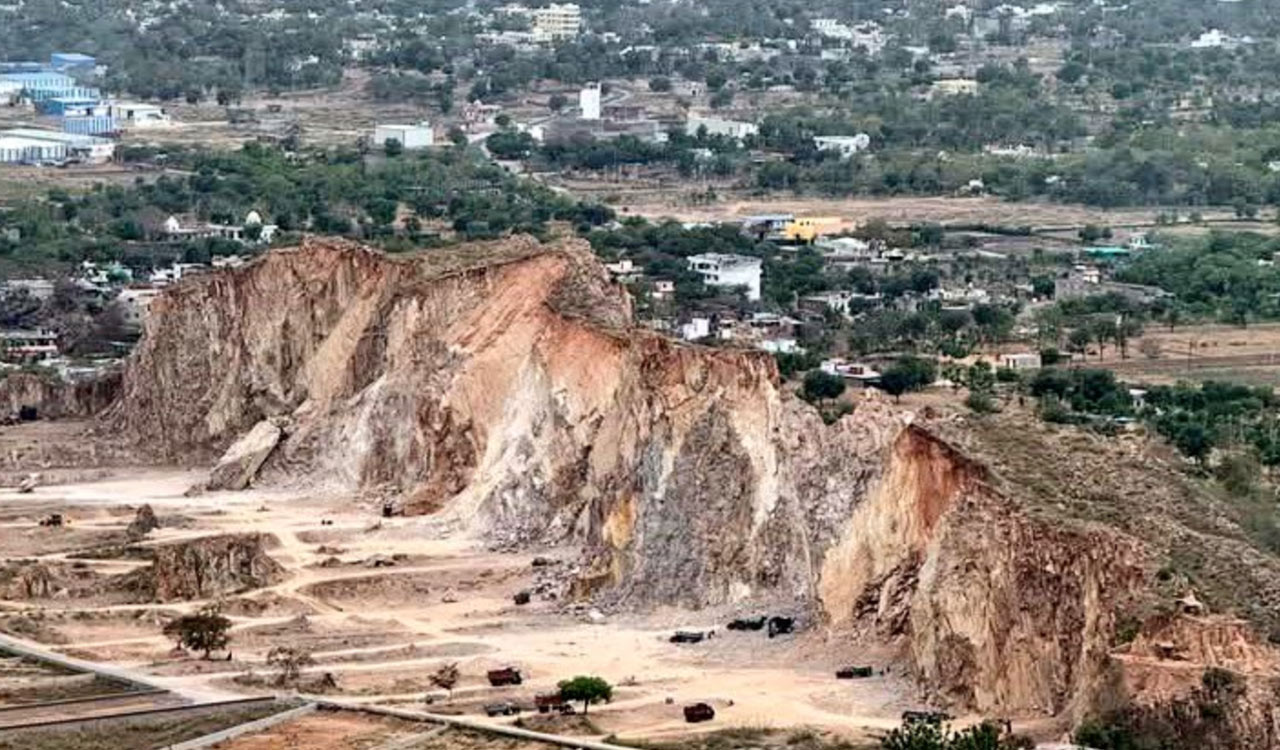Opinion: From pond to prosperity
Turning fish waste into fertilizer will enhance efforts to protect the environment and financially empower fisherfolk

By Pittala Ravinder
In India, where fish is a dietary staple for a considerable percentage of the population, the issue of fish waste management has become increasingly pressing. Despite the nutritional benefits of fish, as highlighted by the World Health Organization and the Indian Council of Medical Research, the country faces a significant challenge with fish waste. Unofficial estimates suggest that nearly 30-40% of fish is wasted during processing. This waste, if not managed properly, poses serious environmental risks, including methane emissions and water pollution.
However, with the right strategies, this waste can be transformed into valuable resources, offering economic benefits and promoting sustainable practices.
Valuable Resource
Fish waste has emerged as a critical environmental issue. Numerous studies have highlighted that fish waste contributes substantially to environmental degradation. While many food ingredients are renewable, fish waste releases methane — a greenhouse gas approximately 25 times more potent than carbon dioxide — into the atmosphere, exacerbating climate change. Additionally, the disposal of fish waste in water bodies adversely affects aquatic biodiversity. The Covid-19 pandemic has altered dietary habits, with fish becoming a more prominent part of non-vegetarian diets. This shift has increased the focus on fish waste.
Countries worldwide are exploring ways to repurpose fish waste into human food and agricultural fertilizers, adding economic value and reducing environmental impact. Scientific research has confirmed that fish waste contains various proteins, vitamins, minerals and other beneficial nutrients. Consequently, extensive research is being conducted globally to explore the potential uses of fish waste.
Researchers have found that fish waste can be converted into organic fertilisers, pesticides and growth promoters. By employing methods such as solar drying, the moisture content in fish waste can be reduced, allowing it to be ground into powder and used as a food ingredient. Many developed countries are already leveraging fish waste to produce organic fertilizers and disinfectants on a large scale. These organic products are not only more effective than chemical alternatives but also have no adverse effects on soil and crops.
Multiple Benefits
Through extensive experiments, scientists have demonstrated that fish waste can be transformed into valuable food materials with multiple benefits, as well as useful agricultural applications such as fertilizers, pesticides and growth promoters. However, in our country, efforts to commercialise fish waste have been minimal. Consequently, there has been insufficient publicity or initiatives to repurpose fish waste effectively. To date, there is no record of significant efforts by government agencies or NGOs to produce fish protein, disseminate laboratory findings to consumers or implement experimental results commercially.
Surprisingly, commercial recycling of fish waste does not require substantial investment, machinery or technological innovation. The organic processing of fish waste into fertilizers and pesticides, as well as its conversion into food products for human consumption, can be managed as a cottage industry or small-scale enterprise. There is immense potential for utilising fish waste in ways that could astonish the world, providing additional income to thousands of fisheries cooperatives and lakhs of fishermen and women which have already been emerged as highly integrated sectors.
It might be beneficial for initiatives like the Integrated Fisheries Development Scheme, implemented by the Telangana government with substantial funding, and the Pradhan Mantri Matsya Sampada Yojana, supported by the Central government with a significant budget of Rs 20,050 crore over the past four years, to consider addressing the utilisation of fish waste. This could enhance the development of the fisheries sector and improve the welfare of fishermen, reflecting a more comprehensive approach from both central and State governments. In the current era, scientists are seeking alternatives to mitigate the adverse effects of the Green Revolution, which began 60 years ago and revolutionised global agriculture.
The ‘pond to land’ initiative of the Telangana Fisheries Society aims to create a robust synergy between aquaculture and agriculture. By integrating fish farming with crop cultivation, the society is working towards a holistic model that maximises resource utilisation, reduces waste and improves the livelihoods of local communities.
Organic Farming
Organic, natural and various other forms of agriculture are reshaping the agricultural sector worldwide. Organic farming is widely practised to protect agriculture from the overuse of technical inputs, chemical fertilizers and pesticides. As part of this movement, organic fertilizers, insecticides and growth promoters, which can be prepared using natural plant and animal species, are gaining popularity among farmers. Organic farming is rapidly expanding globally as an essential alternative to the harmful effects of chemical fertilizers on the health of foodstuffs, the land on which they are grown and the people who consume them.
The involvement and participation of farmers in using these organic fertilizers have facilitated overcoming the obstacles and disadvantages associated with their use and production. The simplicity and accessibility of creating organic fertilizers from natural and readily available materials have contributed to the rapid popularity of this method.
It could be advantageous for departments concerned, administrators and governments to actively consider utilising easily available methods to convert fish waste into organic fertilizers, pesticides and growth promoters. By doing so, they could significantly enhance efforts to protect the environment and restore climate balance. This proactive approach might reflect a stronger commitment to sustainable practices and the overall development of the fisheries sector.
Engaging traditional fisherfolk in the production of these organic products, which are crucial for sustainable agriculture, can significantly contribute to the regeneration of highly nutritious fish waste. This initiative will not only provide additional employment opportunities to millions but also create substantial wealth worth thousands of crores of rupees, apart from protecting the planet from environmental degradation.

(The writer is founder president of Telangana Fisheries Society, former chairman of Telangana State Fishermen Cooperatives Federation and a member of the Asian Fisheries Society)
Related News
-
Deadly avalanche kills eight skiers in California
3 hours ago -
Ayodhya priest questions Telangana govt’s Ramzan relief move
4 hours ago -
Titans emerge champions in sixth Samuel Vasanth Kumar memorial basketball tournament
4 hours ago -
Hyd Open golf championship to kick off from February 19
4 hours ago -
Jammu and Kashmir enter Ranji Trophy final with win over Bengal
4 hours ago -
Telangana High Court seeks ground report on forest plantation at Damagundam
4 hours ago -
Sahibzada Farhan century powers Pakistan to big win over Namibia
4 hours ago -
Chief Minister’s Cup 2025 sees record participation across Telangana
4 hours ago




